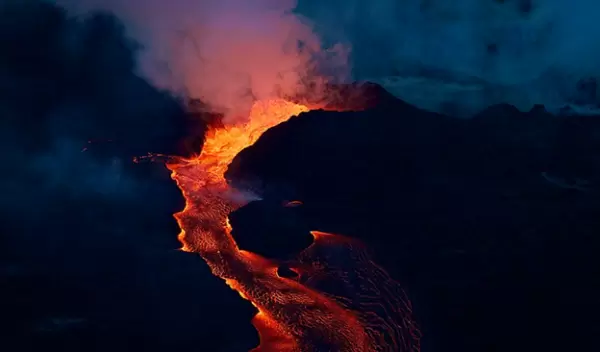
Atmospheric circulation weakens following volcanic eruptions
The Pacific Ocean covers 32% of Earth's surface area. Its activity affects conditions around the globe.
Periodic variations in the ocean's water temperature and winds, called the El Niño–Southern Oscillation, are a major meteorologic force. Scientists know that human activity is affecting this system but are still determining the extent. Now a study in Nature has revealed that the atmospheric component of this system — called the Pacific Walker Circulation — has changed over the industrial era.
In addition, the U.S. National Science Foundation-supported team of scientists has found that volcanic eruptions can cause the Pacific Walker Circulation to temporarily weaken, inducing El Niño-like conditions. The results provide important insights into how the El Niño and La Niña system may change in the future.
"What happens in the tropical Pacific doesn't stay in the tropical Pacific," said Bronwen Konecky of Washington University in St. Louis. "It impacts vast stretches of the world. The Pacific Walker Circulation is a major driver of variability in global precipitation."
Climate models predict that Pacific Walker Circulation will weaken in response to global warming; however, its recent strengthening suggests that aerosols — the suspension of fine, solid particles or liquid droplets in air — introduced by human activity might have the opposite effect.
Konecky and other scientists observed that the length of time for the Pacific Walker Circulation to switch between El Niño-like and La Niña-like phases has slowed slightly over the industrial era. That could exacerbate the risk of drought, fire, rain and floods.
There has also been debate about what the El Niño system does after a volcanic eruption.
Scientists have been looking at whether volcanic eruptions change ocean temperatures because the gradient of ocean temperatures across the tropical Pacific can set the stage for El Niño. The new study tackles the impact of eruptions by focusing on the behavior of the atmosphere, rather than on ocean temperatures. The results are striking.
"Following a volcanic eruption, we see a consistent weakening of the Pacific Walker Circulation," Konecky said.


